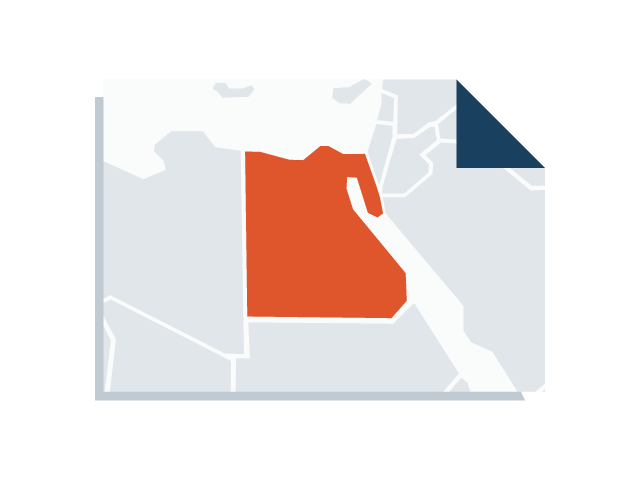AVERAGE SCORE
18READINESS AVERAGE
34IMPLEMENTATION AVG
17IMPACT AVERAGE
10This regional snapshot covers the 12 Middle East & North Africa countries assessed in the fourth edition of the Barometer. Two new countries, Palestine and Lebanon, have been added since the third edition.
General regional highlights and findings
Climbing one place, Israel is the only country in the MENA region to improve its ranking in the fourth edition, and remains the only country in the top 50 of the global ranking. In general, countries in the region have made no progress on open data implementation and barely improved on open data readiness. The momentum the region had when most countries began their initiatives a few years ago appears to have faded.
No government in the region publishes data, open or closed, in some areas usually considered essential to improve social policy or government accountability. While some do recognise the potential of open data to drive economic development, the general absence of political leadership in this area has led to a lack of open data awareness, capacity and legal frameworks.
Regional Ranking
| Global Rank | Score | Country | Readiness | Implementation | Impact |
|---|---|---|---|---|---|
| 28 | 46 |
 Israel
Israel
|
66 | 37 | 42 |
| 50 | 32 |
 Tunisia
Tunisia
|
45 | 32 | 22 |
| 59 | 26 |
 United Arab Emirates
United Arab Emirates
|
47 | 23 | 12 |
| 74 | 19 |
 Qatar
Qatar
|
41 | 18 | 2 |
| 74 | 19 |
 Bahrain
Bahrain
|
33 | 20 | 7 |
| 74 | 19 |
 Saudi Arabia
Saudi Arabia
|
37 | 15 | 12 |
| 79 | 17 |
 Morocco
Morocco
|
38 | 12 | 7 |
| 85 | 14 |
 Egypt
Egypt
|
27 | 14 | 6 |
| 87 | 13 |
 Jordan
Jordan
|
28 | 11 | 6 |
| 100NEW | 8 |
 Palestine
Palestine
|
23 | 7 | 2 |
| 104NEW | 6 |
 Lebanon
Lebanon
|
17 | 7 | 0 |
| 114 | 0 |
 Yemen
Yemen
|
0 | 6 | 0 |
Open Data Barometer 4th edition - Regional ranking
How’s the region performing against the rest of the world?
Readiness
Some countries, including Israel and Saudi Arabia, have recently started working to improve their open data strategies.
Implementation
Some datasets in the region are frequently available — such as national census, government budget and international trade data — although not as truly open data.
Only 66% of data in our analysis was available online. Most data in the MENA region is locked with legal or technical restrictions. Land ownership, government spending and company registers are the least accessible datasets in the region.
Impact
While social impact has been non-existent in the past, the region showed the first signs of impact in this edition. For example, an Israeli startup is using available air quality data to combat pollution
With the exception of some limited examples in Israel, the region is failing to harness the impact of open data. It is even missing out on the kind of economic impacts that are commonplace in the rest of the world.
Country Profiles

Despite falling in the global ranking, Egypt advanced slightly at the regional level, with efforts to improve its open data readiness and advancement at the implementation and impact levels. There was increased interest in open data from civil society (through urban planning and transport initiatives) and from academia (e.g. the access to knowledge initiative). The country hosted several data-driven innovation events and activities in the past two years, illustrating this increased engagement.
However, with no sustainable process and with inadequate political commitment, this open data progress may fizzle. Datasets are frequently outdated and face licensing, quality and discoverability issues, often making them useless. This is particularly common for data required for social inclusion and citizenship rights.

UAE remains in 3rd position in the region. As a regional economic hub with heavy investment in ICT infrastructure and state of the art technology, the country is well-placed to progress its open data efforts. While it understands the potential of open data for economic development and social well-being, it seems less interested in open data as a tool for citizen empowerment and government accountability.
Some of the Emirates have become fairly advanced in their provision and use of data, such as Dubai with the Smart Dubai initiative and the Dubai Data Law, even if these are not strictly open data initiatives. Others have made more modest efforts. The federal administrative structure is likely hindering the implementation of open data due to the dispersed distribution of data ownership and management.

